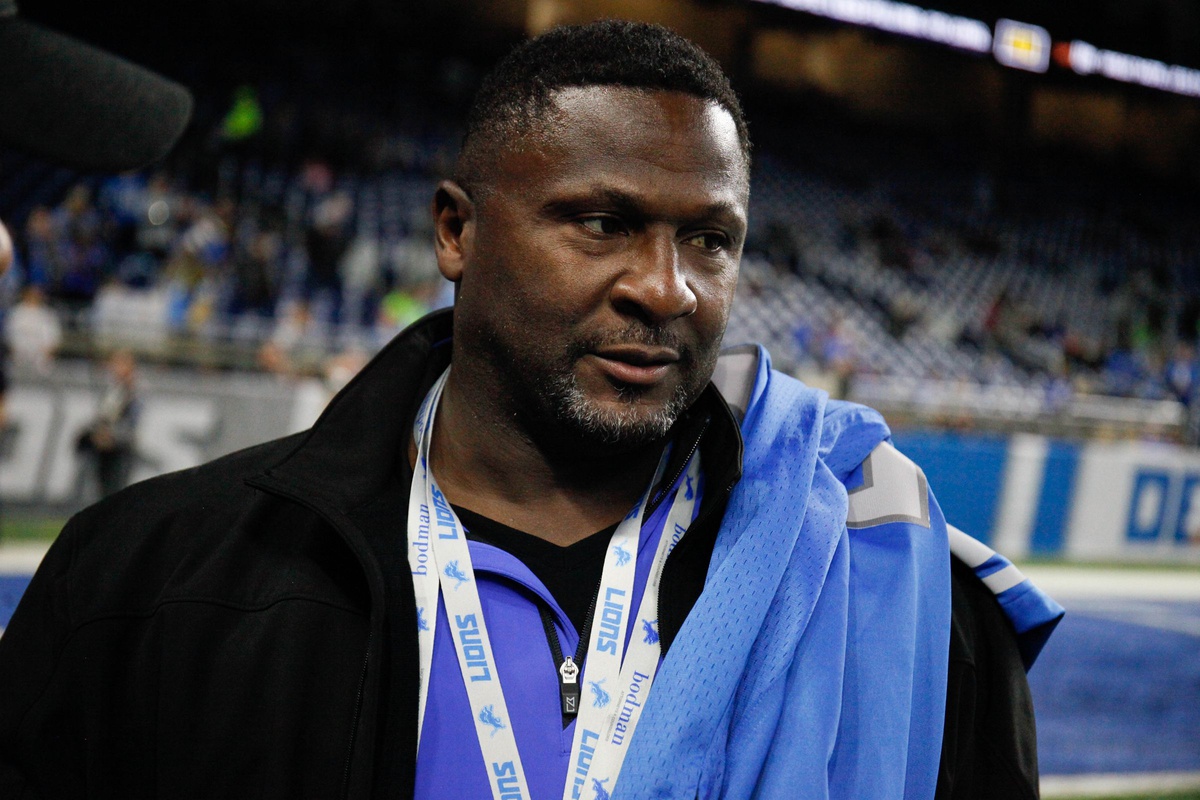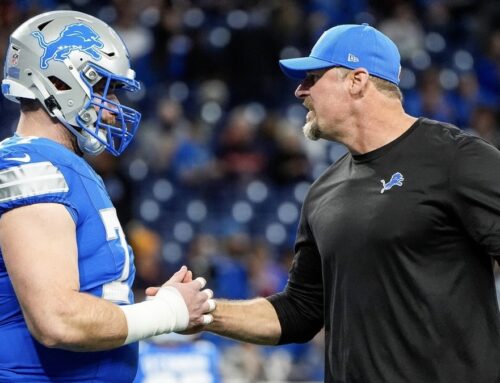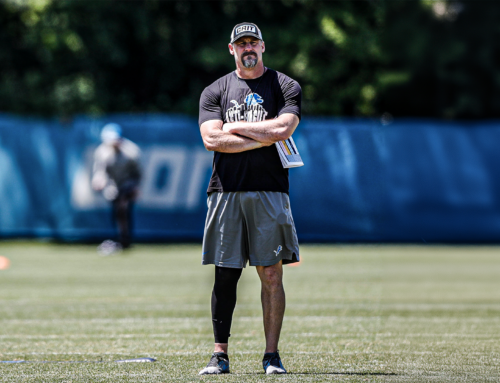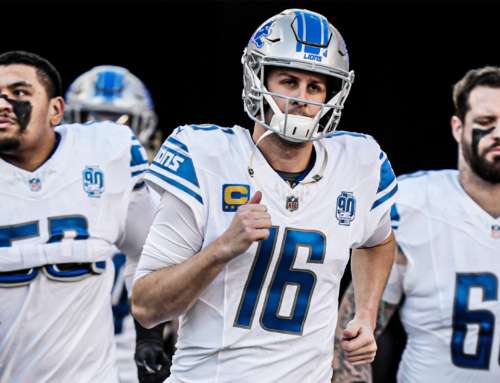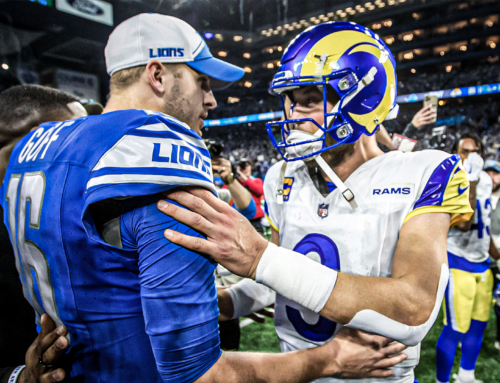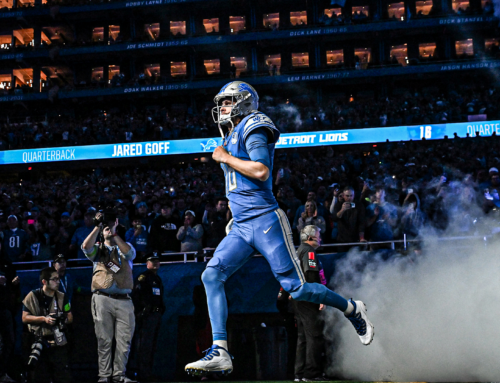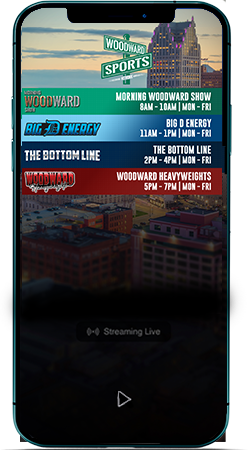When discussing the legends to wear the Detroit Lions’ Honolulu Blue and Silver, people discuss Barry Sanders, Chris Spielman, Calvin Johnson, and several others. One name that erroneously is left out of that conversation is Bennie Blades. During the 90s’ many recognized Blades as on of the NFL’s most physical defensive backs.
On Thursday, Blades spoke with Woodward Sports to discuss the physicality of the NFL, how badly he and his teammates wanted to win for Detroit, and his departure from the Lions. Here is Part 1 of the interview.
Kory Woods (KW): I want to start by going back to your comment on my page a few days ago, talking about the physicality of today’s game. Can you expound more on that?
Bennie Blades (BB): Back then, you had to have almost an intimidating presence when you tackled somebody. In today’s game, people pay reverence to Derrick Henry. Not saying he’s not a big physical back. That he is in today’s game, but when you transpose him into yesteryear’s game, he would be an average [running] back.
You had guys like Christian Okoye, Barry Word, Ottis Anderson. I mean, you had big, big, big backs. Reggie Cobbs, just to name a few, that were, I mean, punishing runners. And there’s no way that a Bennie Blades couldn’t try to tackle those around the ankles and say, “I’m coming at him all the time.”
In today’s game, they don’t teach tackling. I tell people all time, “Look, I’ve coached the game. I’m a president of a youth league organization, and I ref the game. I often question the fact [about their tackling]. I ask the kids when I’m coaching them, “Why don’t you hem folks up?” They look at me like, “uh uh, I ain’t doing that.” There’s no physicality in the game anymore. We have come to accept that.
Anytime I come to ref a game, they be like, “Oh Lawd, there he [Bennie Blades] goes.” I’m not calling flags on the kid that’s being physical. And you get coaches [going] “Ah man, he can’t do that!” Can’t do what? Just play the game. If he pushes him down too hard…take, for example. In one of the games, the receiver and the DB got there, bang bang. Is he supposed to let him catch the ball then tackle him? That’s not the way the game was designed. “Ah Nah ref, he was defenless. He was going for the ball.” Yeah, so was the DB. We’ve come to want points on the board, so you take all the physicality out. And it’s driving me nuts.

KW: Understandable when you’re removing a serious part of the game like that. I want to dive more into those comments from that post. You said you were a team captain. You were very focused, and you were a very intense player. How did your teammates and the coaching staff receive that?
BB: Let’s go back first of all to practice. Even when everybody in Detroit knew, even when I was hurt, I still wanted to practice. What people saw on game day was a small microcosm of what went on during practice. I need to practice to simulate what is going to happen during the game. A lot of times, they were like, “Come on, Bennie, you need to go sit down. We need you on game day.” But to me, game day is all week. Gameday should be the easy part of honing your skills.
I used to get in so much trouble during practice. “Get out of the drills, Bennie. Get out of here.” I loved it when I had guys like Ray Crockett, physical corner. Mel Jenkins, Terry Taylor, William White. We prided ourselves as being the best in the game. For those two years when we were considered the best secondary in the league, we all loved that. But then it got broken up. Next thing you know, I was the lone guy there.
And people don’t realize when you are trying to teach physicality younger guys coming into the game. A lot of people do not like, “Every down I have to smack somebody in the mouth to get him to respect me.” Me and William White used to always to joke. We were like Marvin Hagler every play; it’s no-nonsense. We got to go hit somebody, every play. People knew that when you played Detroit, “I shouldn’t go that way now.” Thirty years later, they say, “Bennie, you really shouldn’t have hit me like that.” But you wouldn’t have remembered me 30 years later.
I think they have taken that element out of the game. Because people don’t wanna; the first thing people say is you guys got to talk about concussions. Concussions are easily, like now when you are taking a hit in the game, are still a part of the game. I get baffled how you are taking one huge aspect of the game away, but yet you still want people to play with reckless abandonment.
KW: You played in Detroit for nine seasons. Was there any point, any season, or any time throughout training camp where you were like, “Hey, we have enough to compete for a Super Bowl here?”

BB: Actually, coming off our 1990 season, we knew we had enough players in that locker room. In my opinion, we had just gotten it right. We had an offensive line to pave the way for Barry. We had a defensive line with guys like Jerry Ball, Robert Porcher, Tracy Scroggins, Lawrence Pete. All of those guys were interchangeable. They could play every different position. At the linebacker position, you had Chris Spielman, George Jamison. Our secondary bar none, probably the best in the National Football League.
Going into that 91′ season and that team, we just knew if we would have kept the nucleus from 91-96, just keep those guys and add small elements to what we had. There is no way. When I talk to guys like Michael Irvin, Mike said, “Man, we dreaded playing you guys.” Because they knew we were going to bring physicality and guys really wanting to win. That team just got dismantled from 92′ to my last year there in 96′.
KW: That is similar to a story about Calvin Johnson. He has spoken publicly about the 2014 team. He said he felt that team would have enough to go out and compete for a Super Bowl. Then that team was dismantled. Just to hear you talk about that 91′-92′ era being dismantled. What do you think the reason was that those teams were broken up?
BB: Money. I tell people, why do you…If you got a recipe for Super Bowl or playoff-bound contention every single year. And you know our contracts are coming up. You have to predestine already that these guys…it’s like in today’s game, they want to get paid. I put my time in, and we let guys go that I know Back in the ’90s for like a $15,000 difference, which is crazy. How do you let a Mel Gray go for a three-year difference of $60,000? That’s an average of $20,000 a year. How do you let him go?
That’s what the whole deal was. “Oh, I don’t want to pay him. I don’t think he is worth that much.” But somebody else in this league saw his value. At least call him back and say, “Well, now I see that other teams see your value, I am going to match them.”
When we go to reunions, we sit around, and we talk about that. Guys would have come back if they would have even just approached them and say, “I will match that, come on back.” We wanted to win really bad for the city of Detroit. But for pennies on the dollar, here we was just broken up like, “See you later. I do not need your services here anymore.”
So, I left there. I don’t make any excuse about I left. My last year in Detroit was arguably one of my better years in Detroit. And they just told me you are getting too old. We are going to replace you with younger guys.
Okay. Not a problem. I’ll go out, and I prove to you why I should still be here. But yet when Seattle gave me an offer, I had my agent call back over to Detroit and say, “Well, can you match it?” Or “Can you just give me a little bit less, and I’ll come back to Detroit?” They didn’t even call him back. And so, for a lot of guys, for money reasons, you just broke up a really prominent and potent team. I tell people 30 years later. We still scratch our heads. I look at when they post stuff. We are the second too, who’s never won a playoff game or even scratched the Super Bowl over 50 years. That’s crazy.
KW: That’s still personal to you?
BB: It really is. Because I tell people growing up, I was an Oakland Raiders fan. I still for them. My heart still lies in Detroit. This past weekend, I went out with my buddies, and I had on my Detroit Lions shirt and everything, and the 49ers were kicking our butts in the first half. I had to hear that all over the bar.
I’m like, no matter what, I’m going to bleed Honolulu blue and silver. And now I know how the real people who live in Detroit die for Detroit for years upon years, upon years, how they feel. Because I live in South Florida, and I’m still representing the Detroit Lions. People was like, “You better find you another team.” I can’t. So I ride around; I wish I could take a picture of it. I have a Detroit Lions cap right above my steering wheel. And I got a Detroit Lions pendant on the right side of my mirror. So people can know that I’m a Detroit Lions fan. I want them to win in the worst way.
We have to stop making things about pennies. Whether you want to be there or not, we let three great receivers, in my opinion, go last year. Why? When guys when they put their time in, they want to get paid. That’s life. If you work on a job for ten years and they bring a hotshot rookie in. And you truly outperform them, in those three years, since his rookie season, you want to get paid your value. But what we do is now, “Nah, go on. I have had enough of you. I’m not going to pay you what you truly earned.”
The second part of the interview with Bennie Blades will be available on Saturday, Sept 18th at 8 am. Follow Kory Woods on Twitter at KoryEWoods.

